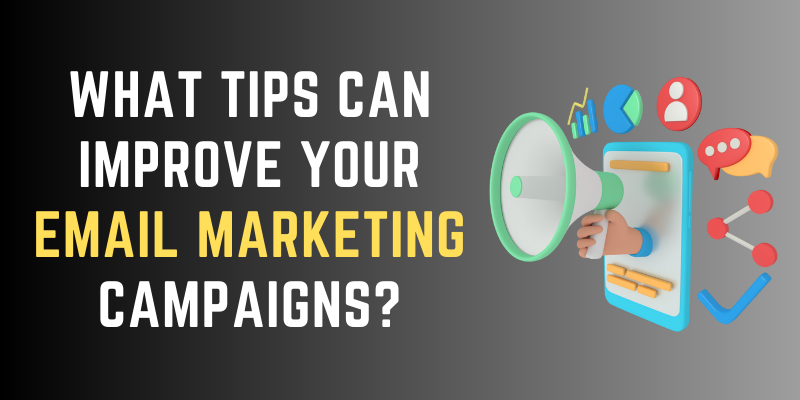What is a Marketing Strategy?
In today’s world, both consumers and businesses are consistently active online and on the move. It’s crucial to connect with them and understand their behaviors in the spaces where they frequently spend their time. However, when you’re in the process of expanding your business, managing the rapidly evolving digital landscape can easily become overwhelming. Balancing various responsibilities and tasks can make it challenging to efficiently develop, refine, and sustain an adaptable digital marketing strategy. Here we will discuss the Strategies and enhancement Tips to Master Digital Marketing. If you’re looking to delve deeper into the intricacies of digital marketing, you might find value in enrolling in a Digital Marketing Course in Chennai.
To enhance your digital presence and foster growth, we’ve curated a comprehensive marketing strategy guide. This resource is designed to assist you in navigating the complex digital realm and optimising your outreach efforts for better business development.
Strategy vs Tactic
A marketing strategy is a structured plan crafted to achieve specific marketing objectives in a targeted and feasible manner. It involves an assessment of your business’s current strengths and weaknesses in relation to the set objectives, followed by the development of tactics to aid in attaining these goals. For small businesses seeking guidance on how to initiate their strategies, this digital marketing strategy template can serve as a valuable tool. It offers practical insights and templates designed to pave the way for success.
Let’s clarify the distinction between a marketing strategy and marketing tactics
- A marketing strategy outlines the overall approach for achieving marketing goals, taking into account the long-term vision and direction of the business.
- Marketing tactics, on the other hand, refer to the specific actions and techniques employed to execute the strategy, focusing on short-term initiatives and implementation details.
Understanding this difference is crucial for creating a well-rounded and effective marketing plan.
Indeed, the contrast between a strategy and a tactic is rooted in their scope, level of detail, and time frame. A strategy serves as a broad and comprehensive plan that steers your overall direction, encompassing long-term goals and the approach you intend to use to achieve them. On the other hand, tactics are concrete and specific actions as well as methods employed to execute the strategy, focusing on accomplishing short-term objectives within a defined period. Understanding this distinction is essential for establishing a well-structured and effective approach to both long-term and short-term objectives.
strategies, regardless of the field they belong to, typically consist of three essential components:
Diagnosis: This involves a thorough assessment and understanding of the challenges or issues that need to be addressed.
Guiding Policy: A well-defined overarching approach or policy to effectively handle the identified challenges.
Targeted Actions: A specific set of actions and steps that are meticulously planned and implemented to fulfill the guiding policy and ultimately overcome the challenges.
Characteristics of a Tactic
Precisely, while strategies establish the foundation for your overarching vision, tactics are instrumental in implementing the steps necessary to realize that vision.
An effective tactic should:
- Be specific, actionable, and measurable
- Align seamlessly with the overarching strategy
- Operate within a relatively short time frame
Based on your marketing strategy, your tactics may involve various approaches such as email marketing campaigns, blog publication, or event organization. To enhance your online visibility and understand the nuances of optimizing content for search engines, consider exploring SEO Training in Chennai for comprehensive training and insights.
What is Digital Marketing Strategy?
A digital marketing strategy refers to a comprehensive plan that utilizes various online channels to establish a strong internet presence and accomplish specific marketing goals. These channels typically encompass organic search, social media, paid advertisements, and other web-based platforms like your company’s website. The ultimate objective is to enhance your business’s visibility and attract new customers in the digital sphere.
A robust digital marketing strategy assists your business in achieving specific digital objectives by utilizing carefully selected mediums. Just like the comparison between marketing strategies and marketing tactics, the terms “digital marketing strategy” and “digital marketing campaign” are frequently used interchangeably. However, it’s crucial to understand their distinctions. For an in-depth understanding of leveraging social media platforms within your digital marketing strategy, consider exploring a Social Media Marketing Course in Chennai.
What is a Digital Marketing Campaign?
Digital marketing campaigns represent the individual building blocks and activities incorporated within your digital marketing strategy that propel you toward achieving specific end goals.
For example, if your primary aim within the digital marketing strategy is to generate more leads through social media, you might launch a digital marketing campaign specifically on Twitter. In this campaign, you could share some of your company’s top-performing gated content to attract more leads through this particular social media channel. If you’re interested in expanding your knowledge of digital marketing, you may explore Digital Marketing Courses In Bangalore for valuable insights and practical skills.
How to Create a Digital Marketing Strategy
Here is a breakdown of the steps you need to take for a successful digital marketing strategy:
- Create detailed buyer personas that represent your target audience. Understanding your audience’s needs and preferences is essential for effective communication.
- Clearly define your goals and identify the digital marketing tools required to achieve these goals. Whether it’s lead generation, brand awareness, or customer engagement, the right tools will help you reach your objectives.
- Evaluate your current digital channels and assets. Understand how these channels are performing and how they can be optimized to better reach your target audience.
- Conduct an audit and plan your owned media campaigns. Utilize your website, blog, and other owned platforms to create engaging and valuable content for your audience.
- Conduct an audit and plan your earned media campaigns. Focus on building relationships with your audience through social media, content sharing, and other forms of engagement.
- Conduct an audit and plan your paid media campaigns. Utilize paid advertising, such as pay-per-click (PPC) and social media ads, to boost your reach and visibility to a targeted audience.
- Integrate all your digital marketing campaigns to ensure a cohesive and unified approach across all channels. Coordinate your efforts to maximize the impact of your digital marketing strategy. To enhance your skills in Salesforce, you may consider exploring Salesforce Training In Chennai for comprehensive learning.



